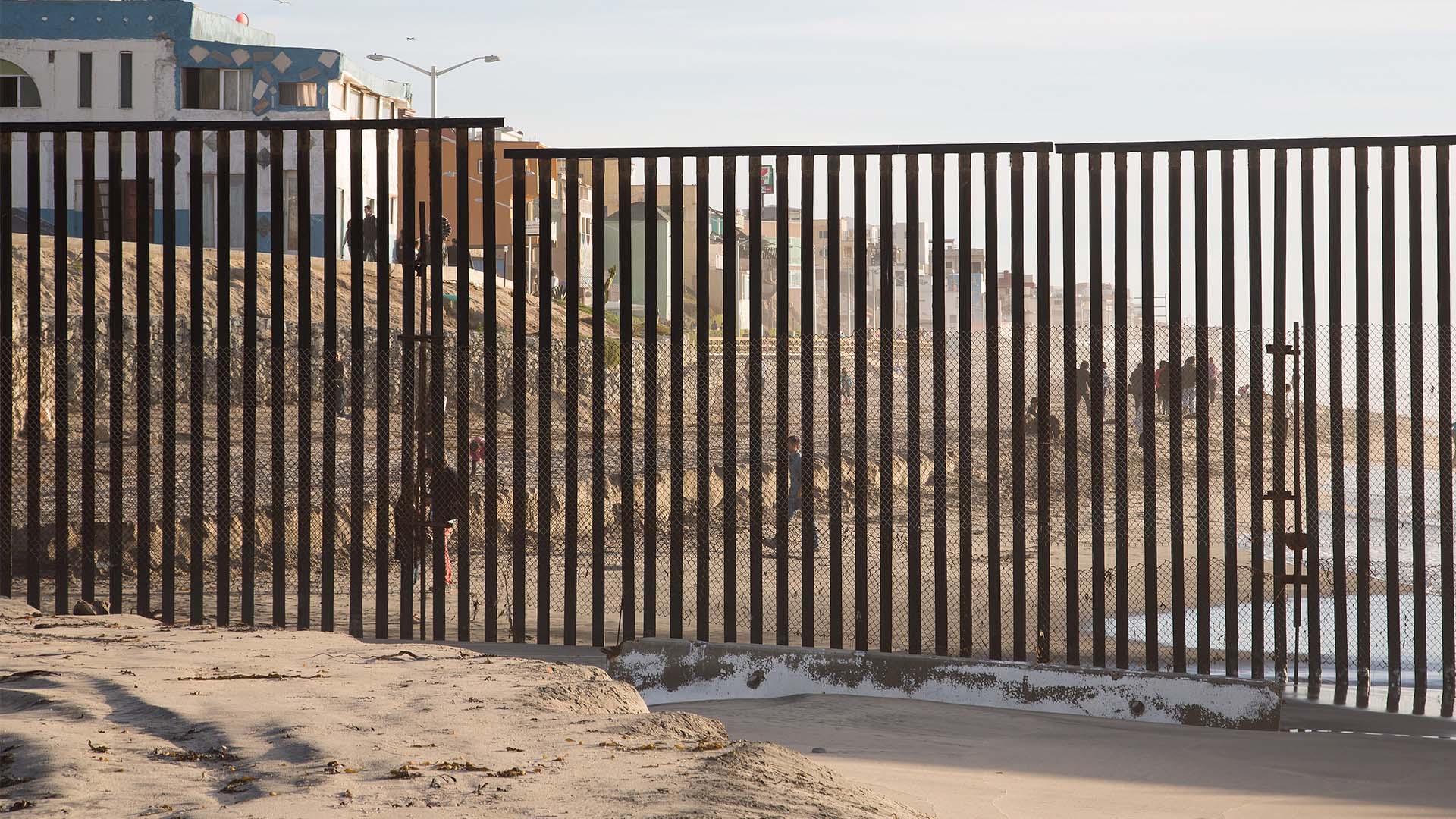Immigration has emerged as one of the most critical issues for voters in the November 2024 US presidential elections. It is the third most important issue to voters after the economy and protecting democracy. The shifts in attitude came after irregular migration reached historic levels before President Biden issued an executive order in June 2024 that has contributed to three consecutive months of decreases in border crossings. The two presidential candidates, former President Donald Trump (a Republican) and Vice President Kamala Harris (a Democrat), disagree on most immigration policies and employ vastly different rhetoric to discuss the issue.
As president, Trump implemented sweeping policies to combat irregular immigration and reduce legal immigration, using the vast powers of the federal government, including diplomatic pressure and coercion, to pursue this agenda. If re-elected in 2024, he has promised to ‘terminate every open border policy of the Biden Administration’. He has also vowed to ‘restore all of his prior policies’ and take additional steps, some of which would likely push the outward limits of US law.
One of the most cited actions Trump says he would take on his first day in the White House is to ‘begin the largest deportation operation in American history’. Trump’s campaign said he would ‘marshal every federal and state power necessary’ for the purpose. While the president has the legal authority to pursue increased deportations, an initiative of the scale proposed would face significant logistical, resource and diplomatic challenges. Depending on how it is implemented, it could also face litigation. Research shows that such a mass deportation would have a significant economic impact, causing disruption in some industries, reducing tax revenues and reigniting inflation. Moreover, images or videos of US agents knocking on doors and arresting families with young children, senior citizens or long-time residents with no criminal record would likely result in a public outcry.
Trump says he would take on his first day in the White House is to ‘begin the largest deportation operation in American history’. Trump’s campaign said he would ‘marshal every federal and state power necessary’ for the purpose.
In his 2016 campaign, Trump focused extensively on his promise to build a wall across the US-Mexico border. In his 2024 campaign he has focused more on reinstituting his border and asylum policies. At a campaign event, Trump did not rule out reviving Zero Tolerance, one of his most controversial immigration policies. Pursuant to this 2018 policy, immigrant families who crossed the US-Mexico border were separated; children were placed in US custody and reunified with other family members, while parents were criminally charged and deported. He said, ‘I know it sounds harsh. When you say to [a] family if you come, we’re going to break you up, they don’t come. And we can’t afford to have any more.’ Trump bowed to domestic and international pressure and abandoned the programme within just three months of its operation. Implementing the programme again would likely cause the same negative public reaction as in 2018. It would also subject families to unnecessary pain and trauma. Of the 4,656 children separated from their parents due to Zero Tolerance, 1,360 have still not been reunited.
Trump has also said he would reinstitute three other controversial programmes that would make it more difficult for asylum-seekers crossing the US-Mexico border to access protection in the US. One is the Migrant Protection Protocols, a programme negotiated with Mexico that allowed the US to return certain immigrants to Mexico while they awaited the resolution of their US immigration proceedings. Another is the Asylum Cooperation Agreement, an initiative the US negotiated with El Salvador, Guatemala and Honduras to transfer certain asylum-seekers to these countries to allow them to pursue their protection claims there. Lastly, he and his advisors have said he would invoke Title 42, a public health authority that allows the US government to expel immigrants immediately in the name of public health. In 2020 his justification was the COVID-19 pandemic. To justify his approach this time he has laid the groundwork, claiming that immigrants are bringing tuberculosis and other contagious diseases into the country. These programmes will be criticised by civil society organisations, some members of Congress and international organisations, just as they were when first implemented, for putting immigrants in danger and denying them access to the US asylum system. They would also certainly face litigation.
Trump has also promised to restore his ‘travel ban on entry from terror-plagued countries’. As president, one of his first actions in 2017 was to ban travellers from certain majority-Muslim countries from entering the US. Trump has promised to bring back the travel ban ‘even bigger than before and much stronger than before’. The programme will likely survive legal attempts to block it as advisors have a successful roadmap from Trump’s first Administration. The more significant issue is the programme’s effectiveness and impact. There is no evidence that nationality-based travel-ban programmes are effective. Moreover, its implementation would likely undermine the government’s ability to sustain or improve cooperation and information sharing with key countries in the fight against terrorism, as well as hurt US credibility in the world, as it would appear to be a policy designed to discriminate against Muslims.
Trump has also said that he wants to end birthright citizenship for children born in the US to undocumented immigrant parents. He said he would sign an executive order on his first day in office to withhold passports, Social Security numbers and other government benefits from such children. The overwhelming legal consensus is that the 14th Amendment provides this right to immigrants. Therefore, to revoke it, either the Supreme Court would need to rule in Trump’s favour, or he would need to pursue a Constitutional amendment, which requires Congress to propose a measure and three-quarter of US states to ratify it. However, polling shows that only 46% of Republicans and 30% of Democrats back the measure, making it highly unlikely for it to be adopted as a constitutional amendment.
Harris has a lengthy public record given her time as a District Attorney in California, Attorney General of California, Senator, presidential candidate in the 2020 election and Vice President; however, during her 2024 presidential campaign, she has sought to distance herself from some of her prior, more liberal positions before her time as vice president. Instead, she has primarily backed President Biden’s policies while adjusting the message.
When Harris entered the race in July, Biden trailed Trump by 35 points on securing the border and controlling immigration. This is likely why she has provided few details on her immigration views and campaigned as a more solutions-oriented, centrist candidate. Since then, she has improved but still trails Trump by 21 points.
During the September presidential debate, Harris emphasised her experience as Attorney General of California prosecuting cross-border crimes, such as drug trafficking and human trafficking, to distinguish herself from Trump. She also vowed to sign into law a proposal that a bipartisan group of Senators released in early 2024 before it failed due to Republican opposition. The bill would authorise hiring thousands more border patrol agents and asylum officers, allow the president to close the border if irregular border crossings reach a certain threshold, and raise the standard for being able to claim asylum, amongst other provisions. Harris has criticised Trump for urging Republican members of Congress to oppose the bill because he did not want to give Biden a victory on immigration during an election year.
If elected, she would likely continue to support US government efforts that she has been leading as vice president to increase public and private investments in Central America to address the root causes of migration. She would also likely continue the government’s work to create and expand legal avenues for immigration, such as refugee resettlement, work visas and parole, to reduce pressure on the US-Mexico border. She would also be expected to pursue enhanced migration management cooperation with other countries in the hemisphere by encouraging the other 21 signatories to implement the Los Angeles Declaration on Migration and Protection. Individually, none of these programmes or initiatives would be expected to reduce or alter migration flows immediately or significantly. However, when coupled with other policies, they serve as the building blocks for creating a more enduring migration management system that promotes safe, legal and orderly migration.
Despite the many differences between the two candidates, they agree on the need to strengthen border security and reform the asylum system. Trump has long held these views, while Harris and many Democrats have only recently adopted more hawkish positions consistent with public opinion. A recent poll revealed that 55% of adults support reduced immigration to the US, the highest total since the aftermath of the 11 September 2001 terrorist attacks. Moreover, if polling continues to show strong support for border and asylum reforms in 2025, it could serve as an impetus for the two parties to come together and pass meaningful immigration reform legislation, something Congress has not accomplished in nearly 40 years.



